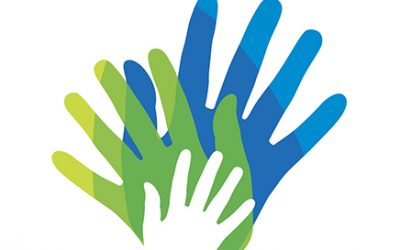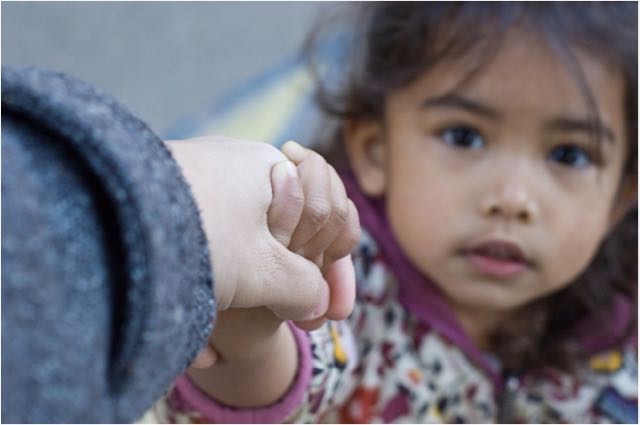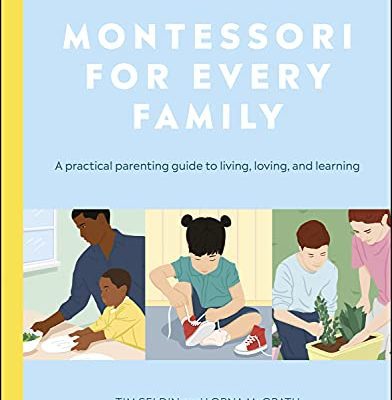by Tim Seldin and Lorna McGrath, an excerpt from Montessori For Every Family, published by DK Press, © 2021
The kitchen is often the hub of family life, a place where family members gather to prepare food, to talk, and to be close to one another. Young children, in particular, enjoy helping out in the kitchen and spending time with parents while they work there.
Easily accessible plates, cups, bowls, and eating utensils encourage independence in your young child.
Ages and Stages
18 months–6 years: Place items in reach so even very young children can help prep, independently get food for themselves, and clean up. As impulse control and coordination grow, use child-sized ceramic plates, glasses, and metal cutlery. (Use a butter knife until about the age of four.)
6–12 years: Your child can help with simple cooking tasks. Teach them about basic nutrition, cleaning surfaces and utensils, and safe food storage.
12–18 years: Teens can help with meal planning, grocery shopping, cooking, and cleaning.

Tips for Your Kitchen Home Environment
• Create an accessible space: Organize the kitchen to assist and encourage your child to develop the everyday skills that allow them to be helpful and become independent. When everything has a place and is accessible, you create a sense of order that helps your child navigate the kitchen calmly and confidently. Working together to prepare meals and clean up not only helps your child develop useful life skills, but also creates a family community. For young children, simple adjustments make it easy for them to help out.
• Set aside a low refrigerator shelf to store prepared drinks or a small jug of water, fruit, and ingredients for sandwiches and snacks. Allowing your child to help themselves to a snack or drink teaches them self-regulation.
• Use non-breakable containers for peanut butter, jams, and spreads so your child can successfully get out and put away ingredients while they are working on holding and carrying skills.
• If space allows, a child-sized table and chair allows young children to set up and eat their food independently.

• Put plates, cups, and napkins in a low cupboard or on a low shelf. Store cutlery in a low drawer or basket. Ideally, use child-sized metal cutlery, either custom-made or smaller items from your set. Using unbreakable plates and cups until 3 to 4 years of age helps children gain skills confidently and safely.
• Prepping and cleaning-up tools include a sturdy stool or a set of small, stable steps that allow a young child to help wash up or prep food at a counter. Show your child how to wipe the counter after use to instill this habit for life. A child-sized broom, dustpan, and mop will mean that, from a young age, your child can help clean the kitchen floor.

Lorna McGrath, MEd, is Director of IMC School
Accreditation, Program Director of the Montessori Family Alliance, and Senior Consultant of The Montessori Foundation. Lorna has 41 years of experience in the field of education, teaching children from 18 months through 6 years old and from 12 through 18 years old in both public schools and independent Montessori schools. Lorna is a Montessori teacher educator, conference presenter, and school consultant. She can be reached at lornamcgrath@montessori.org.

Tim Seldin is President of the Montessori Foundation and Chair of the International Montessori Council. His more than 40 years of experience in Montessori education includes 22 years as Headmaster of the Barrie School in Silver Spring, Maryland, his alma mater from toddler through high school graduation. Tim was Co-Founder and Director of the Institute for Advanced Montessori Studies and the Center for Guided Montessori Studies. He earned a B.A. in History and Philosophy from Georgetown University, an M.Ed. in Educational Administration and Supervision from The American University, and his Montessori certification from the American Montessori Society. Tim is the author of several books on Montessori Education, including How to Raise An Amazing Child, and The World in the Palm of Her Hand. Look for his new book, Montessori for Everyone, co-authored with Lorna McGrath.






